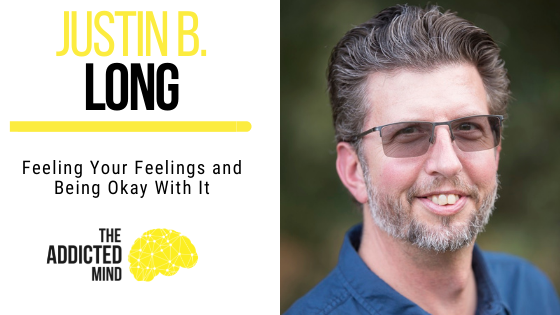Many of the addiction issues among adults are caused by unfavorable events and traumas that occurred in childhood and have not been resolved. Feelings of guilt, shame, and rage are left buried in the deep pit of emotions. When triggered, those feelings begin to show and manifest.
Part of the recovery process is going back to your childhood trauma and looking at it from a 30,000-foot view.
Understanding how you felt in those situations and what was going on could change your perspective. It could also change the basis of your self-beliefs because what you thought you knew about yourself turns out to not be true.
You get to rewrite that story.
Justin B. Long, author of The Righteous Rage of a Ten-Year-Old Boy: A Journey of Self-Discovery, talks about achieving recovery through uncovering our deeper feelings. This is done by addressing childhood events and traumas and changing how your emotions have been tied to those memories.
Getting Past Toxic Masculinity
Toxic masculinity is a concept in society that says you’re not allowed to have feelings. You’re not supposed to express anything but just be stoic about everything. Many of us buy into the idea that somehow we’re flawed if we feel a certain way and choose to express it.
Although we may not necessarily understand that as children, as we grow older, we begin to take that on as an identity. This is especially true during the formative years when you take in everything around you and believe it to be true.
Overcoming Rage
Justin explains an entire emotional arc when it comes to processing and coming to terms with your rage.
The beginning marks what happened and why it happened. As it goes up to the middle, you think you have every reason to be angry about something. You try to justify your hostility.
At the end of the arc, you realize that while you have a reason to be angry, your anger isn’t doing anything positive.
True freedom comes from moving past that anger and letting go of that rage, even if it is justified.
It’s okay to have whatever feelings you have and to feel those feelings. You don’t need to do something to change those feelings. For many of us, we try to change the way we feel or cover up our feelings through alcohol, food, or something else.
We have to learn to feel our feelings and be okay with them. It may hurt sometimes but that’s okay because the pain is part of it too.
If you want to learn more about Justin’s recovery journey, check out Episode 159: Feeling Your Feelings and Being Okay With It with Justin B. Long.

